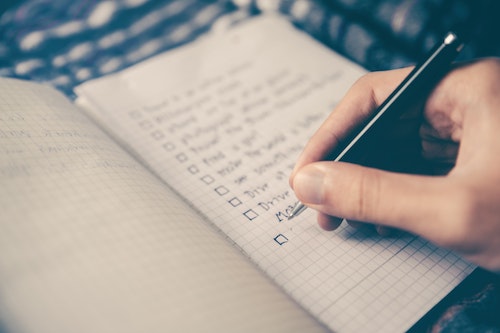How to Talk to Anyone (Junior Talker #4), DeYtH Banger [ebook reader screen .txt] 📗

- Author: DeYtH Banger
Book online «How to Talk to Anyone (Junior Talker #4), DeYtH Banger [ebook reader screen .txt] 📗». Author DeYtH Banger
Of course, sometimes procrastination is a product of laziness. If you have an exam to study for, a paper to write, if you have a presentation to make, or a boss/client to appease, then the work will have to get done, whether you start today or put it off until tomorrow.
Only Do Work You’re Really Passionate About
Maybe you don’t have a procrastination problem as much as you have a work problem. If you find yourself procrastinating day in and day out, week after week, month after month, year after year, maybe you’re not doing what you’re meant to do. Maybe its time to get a new job, switch careers, or drop out of school and pursue your passion.
Of course, there’s also a good chance you’re faced with a painful, unpleasant task and you simply need to power through to get to where you want to be in life. If that’s the case, then read on (or better yet, stop reading now and go do what you need to do).
If there’s work you need to get done, here are some effective ways you can try overcoming procrastination:
1. The First 30 Minutes Of The Day Is Always For Work
Does this sound familiar: you start the work day/study session by telling yourself you’re “just going to check email/facebook/twitter/reddit for 5 minutes, then I’m going to get to work”. Before you know it, 5 minutes has dragged into 2 hours, and 2 hours has dragged into 4 hours, and you realize you’ve spent half your day sucked into a never-ending loop of checking email, social media, youtube, and your favorite viral news sites?
The first 30 minutes of your day/work day/study session should be spent doing work. If you need to check email or your social news sites, do it once you’ve established a good work groove and you’ll find it much easier to shut it off. Or better yet, block distractions out completely until you’re done.
Having trouble jumping into those first 30 minutes? Tell yourself that you’re just going to get 10 minutes of work done and if its just too painful, you’ll give yourself a break. That first 10 minutes is usually all you need to start getting focused.
2. Become More Self Aware
Procrastination usually comes in two forms. There’s:
Difficulty in starting a task Getting distracted while working on a task
They both follow a similar pattern of self rationalization.
You tell yourself “I really need to get started on this.” You feel stressed. You feel an urge to do something else, so you tell yourself “I’ll get started soon, but I can afford another 5 minutes doing this one other thing.”
Giving yourself this little reprieve relieves the stress temporarily and reinforces the neural pathways associated with procrastination, making it just a bit easier to fall victim to procrastination again, 5 minutes later.
Try this next time you find yourself facing this never-ending cycle. Next time you’re about to start a task and you feel a voice in your head telling you to “check your email, it might be important!”, or “I wonder if anyone commented on my Facebook status”, resist the urge. Tell yourself you’ll just resist it this one time.
You’ll find that the urge does pass once you acknowledge it for what it is – a sudden impulse driven by your reptilian brain.
3. Block Out Distractions
Did you know that willpower is a limited resource that can be depleted like any other form of energy? Much like going on a morning jog tires you out for your evening work out, the more energy you spend resisting temptation, the less energy you’ll have for resisting temptation later on. This has been confirmed by real studies.
What does this mean for someone trying to get rid of procrastination? It means that just knowing that Facebook or Reddit is one click away can make it more likely that you’ll get distracted and start procrastinating. While you might be able to resist the temptation during the first half of your work day, as you expend energy focusing, you’ll become more and more likely to give into temptation and start procrastinating.
To avoid this, use software like Rescuetime, StayFocusd or Freedom to block distracting websites, or block the internet out altogether. Not having to deal with the temptation of constant distractions will not only make it less likely that you’ll succumb to momentary temptation, but it will actually give you more energy to focus on your work and avoid procrastinating when you’re tired.
4. Embrace Imperfection
One of the reasons we procrastinate is to avoid having to make tough decisions and deal with a difficult task. If you’re trying to write the perfect paper, coming up with the perfect thesis can be so intimidating that you don’t even want to get started.
Instead of always aiming for perfection, start intimidating projects by just getting started. Can’t come up with a perfect first line for your essay? Just start writing anything that comes to mind on the topic. Can’t think of a topic? Just start writing down anything vaguely related to the subject matter.
The same can be applied to studying. Is the thought of reading that thick textbook too intimidating? Just start by reading the table of contents, or the first page. Too tired to take notes or really process the concepts? Just skim through what you need to get through and come back tomorrow to re-examine the material when you’re refreshed. Getting something done is better than doing nothing, and once you get started, you’ll often find you have more energy than you thought you did.
5. Make Yourself A Date
Human beings can be strange – if we’re meeting a friend, we’ll set a fixed time to do so, and we show up. Most of us would never make an appointment with a friend and simply avoid showing up for no reason. Yet when it comes to important tasks like going to the gym, or getting another chapter written for your novel, we’ll just set vague goals and feel perfectly comfortable pushing back our self-imposed deadlines.
Start scheduling your important tasks and showing up every time, no matter what. You wouldn’t bail on a meeting with a friend just because you feel a little tired, would you? So why do you do it with the gym? If you want to go to the gym 3 times a week, instead of just telling yourself you’ll go 3 times this wekk, pick 3 days and 3 times that you’re going to show up, and don’t miss those appointments no matter what.
Find Your Motivation To Study (Even If You Don’t Have An Exam)
Let’s face it.
Being a student sucks. It’s like having a job, but not getting paid.
Yes, you’re getting an education, which is great…
But finding the motivation to study can be a challenge.
The definition of motivation is:
The general desire or willingness to do something.
So the trick to increase your motivation to study is to increase your desire to study in the first place.
That’s why we’ve come up with this kick-ass list to help you boost your motivation to study (even if you don’t have an exam)…
1. Cut your study time in half (that’s motivation in itself!)

For those procrastinators out there, you’re going to love this…
Parkinson’s law is the theory that “work expands so as to fill the time available for its completion“.
For example, if you give yourself 10 hours to study, you’ll take 10 hours to study.
The next time you have a project, paper, or exam, cut the time you think it’ll take to prepare in half to increase your focus and productivity and maximize results.
For example, if you think it’ll take you 10 hours to study for an exam. Only give yourself 5 hours.
WARNING: This is a risky approach, but if done properly, it can have great results.
2. Make studying fun with mnemonics

Mnemonics (sounds like new-monics) is when you use systems for improving your memory. It can be a fun way to boost your study skills and improve your memory.
Here’s an mnemonic you may already know: Never, Eat, Shredded, Wheat
This is used to memorize the directions of North, East, South, West (listed clockwise)
There are tons of articles online that’ll help you get started with mnemonics.
3. Get a study buddy or study group

One of the best ways to motivate yourself to study is to get a study buddy (or study group) because not only will you be relying on them, they’ll be relying on you. Studying with others is fun, productive, and more effective because if you have questions on the material your study buddy can help.
Here’s what you need to do:
Find a study buddy (or study group). The best place to find a study buddy is someone in the same class. Or you can ask multiple people to set up a group. Set a schedule for your study sessions. It helps to schedule it at the same time every week so you don’t have to think about when it is and it becomes a habit. Find a location to meet that has WIFI such as the library, coffee shop, or a fast food joint.
4. Set goals

If you want to be a successful student, you need to set goals. Because if you don’t have goals, then it’s like shooting in the dark.
An easy place to start is to:
Talk to a counselor to determine the classes you need to take to get your degree. Then… List which classes you need to take each year. Then… List which classes you need to take each semester/quarter. Then.. List off what grades you want to achieve for each class.Just having this type of list and being able to check it off is a HUGE boost to your confidence and internal reward system.
It’s like running a race and seeing the mile markers fly by!
5. Treat yourself, don’t cheat yourself

To enhance your motivation to study, reward yourself for a job well done.
Whether it’s buying a cup of your favorite coffee, going on a nice long hike, or snarffing down a bag of potato chips, reward yourself for a good, long study session. This reward system, will help motivate you to study more often.
WARNING: Only reward yourself AFTER you study. Treating yourself before you do the work defeats the purpose.
Alright students!
Enough reading… It’s time to hit the books, study, and kick-ass!
Best of luck.
P.S. - When is time for books... it's time to read
The SoSuave Guide to Women and Dating - Book How to Talk to Anyone, Anytime, Anywhere: The Secrets of Good Communication by Larry King, Bill Gilbert - Book Crucial Conversations: Tools for Talking When Stakes Are High by Kerry Patterson, Joseph Grenny, Ron McMillan, Al Switzler, Stephen R. Covey (Foreword) - Book





Comments (0)